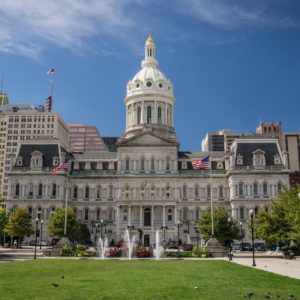The Stream, December 8: Thousands in Texas Without Drinking Water
The Global Rundown
Electricity falters throughout Malawi as falling dam levels affect hydropower. High winds and a long dry spell spark another round of California wildfires. Marginal rainfall threatens Argentina’s late-season corn and soy crops. The northern Chinese province of Hebei prepares to launch an environmental tax plan, which includes water pollution fees. Three months after Hurricane Harvey, thousands of Texas residents are still without water.
“There is no fire season anymore.” –Scott McLain, spokesman for the California Department of Forestry and Fire Protection, in reference to the unseasonable wildfires razing Southern California. Large wildfires in December are traditionally rare, but a lengthy dry spell created the conditions for later than normal blazes. U.S. News and World Report
Latest WaterNews from Circle of Blue
Baltimore City Council to Introduce Water Affordability Package in 2018 – Baltimore is the latest U.S. city to reassess water aid for the poor.
Uprooting FDR’s ‘Great Wall of Trees’ – Planted after the Dust Bowl. Cut down in the climate change era.
By The Numbers
3,700 Number of Texas residents who have been without clean water since late August, when Hurricane Harvey inundated the state. More than a dozen boil-water notices remain in effect across seven southeast Texas counties. ABC News
200 megawatts Amount of hydro-generated electricity lost in Malawi on Wednesday night due to low water levels at the country’s two main dams, leaving the southern part of the country in darkness for two hours. Power has been rationed since August as drought throttles Malawi’s main hydropower sources. Reuters
Science, Studies, And Reports
A springtime drought is devastating Argentina’s corn and soy crops, according to reports from the country’s farmers. Late-season planting has been pushed off due to the dry weather, and the drought is also threatening the development of already-sown crops. Business Insider
On The Radar
China’s heavily-polluted Hebei province prepares to launch an environmental protection tax, which the government hopes will encourage local polluters to clean up. Starting in January, firms will be fined according to the amount of water, air, and noise pollution they produce. The province expects the tax to raise 1.9 billion yuan ($287 million) in its first year. Reuters
Kayla Ritter is a recent graduate of Michigan State University, where she studied International Relations and Teaching English to Speakers of Other Languages. She is currently based in Manton, Michigan. Kayla enjoys running, writing, and traveling. Contact Kayla Ritter




